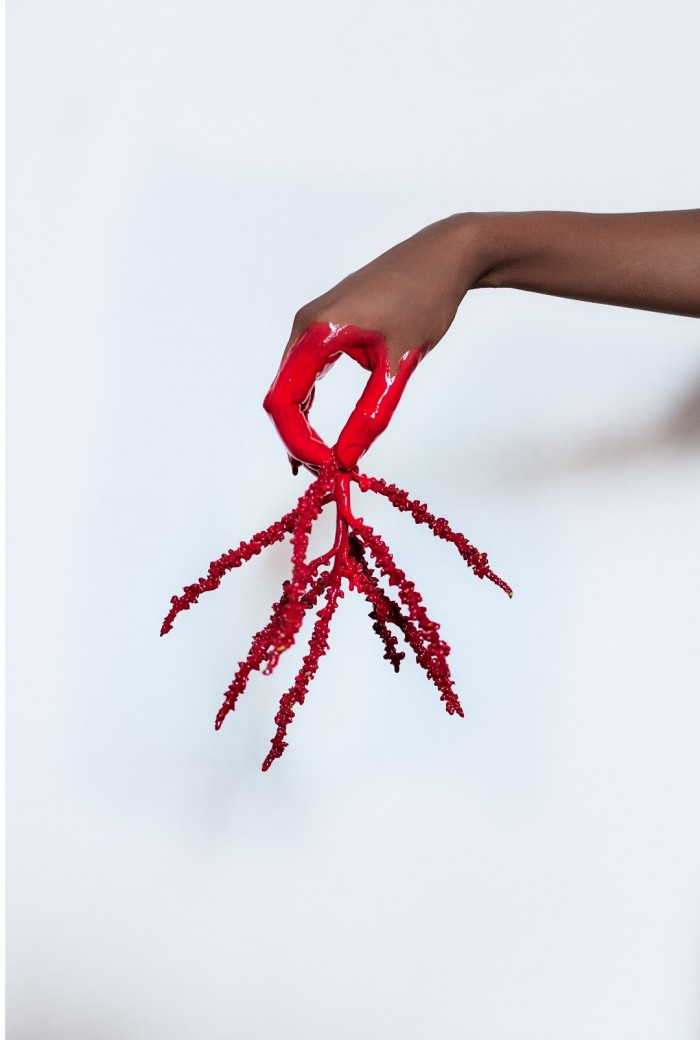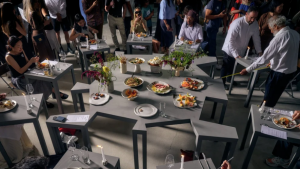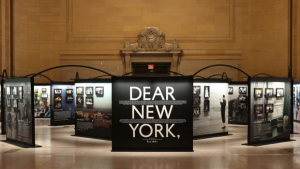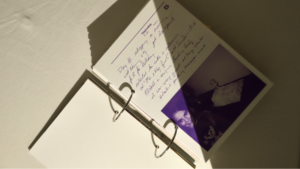In recent years the global community has become more vocal and active on the issue of menstruation. Access to sanitary care is the leading cause for concern, as it impacts so heavily on other elements of daily life, like hygiene and the spread of disease, education and gender equality.
An element of menstruation a little harder to address, and fix, is that of taboos attached to the biological monthly occurrence.
This is something Tanzanian visual artist Elizabeth Mwambulukutu is facing head-on with her work, which seeks to provide an alternative, inclusive and empowering approach to storytelling.
Her most recent work, Hedhi Huru, aims to open up the conversation around menstruation, by means of visually presenting what women go through.
“I believe the first step to addressing any problem is by creating conversation around it. Unlike languages which have barriers, I couldn’t think of a better way to break them than explore menstruation by painting the picture (literally) of what women experience during menstruation and confront viewers as to why it makes us so uncomfortable to talk about - let alone see,” she says.
Hedhi Huru translated from Swahili means menstrual freedom. Freedom to flow, freedom to be, freedom to mess up. Mwambulukutu says she takes pride in her “hedhi,” but it’s not enough if this can’t be the case for the rest of the women and girls in the world.
“Why don’t we normalize the period conversations? I mean a girl not having her period could trigger panic to some, so why can’t we celebrate them monthly like a well anticipated guest,” she asks.
Naturally, the colour red dominates the series of images, from red objects to paint dripping from the naked body of a woman. The artist was able to share some of these for online usage, but the more risque additions are reserved for the exhibition space.
She recently exhibited her work at Nafasi Art Space’s Taboo exhibition in Dar es Salaam, with plans to show at VOICE Tanzania at Alliance Francais in February, which focuses on work that cultivates inclusivity and diversity. But while the Hedhi Huru series lives to tell the story via images, Mwambulukutu is extending the conversation beyond her work as a photographer.
In addition she is addressing these hard topics from her Twitter platform, collaborating with a medical journalist on threads that provoke conversation from both women and men. Most importantly, this is done in Swahili, Tanzanians’ own native tongue, rather than English.
Mwambulukutu feels a particular responsibility as a young creative to facilitate change and tell the stories that matter.
She shares: “Communicators and storytellers play a fundamental role to drive change. Living in a globalized world, creativity is a great tool of empowerment for the next generation to own their narratives.”
Read more:
South African photographer Lebogang Kganye unpacks her family's journey of migration








